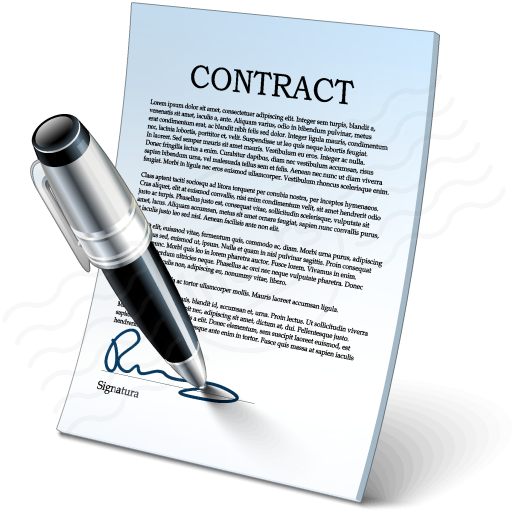Your privacy is important to us. The principles relating to the processing of personal data in accordance with the General Data Protection Regulation (GDPR) – transparency, lawfulness, purpose limitation, accuracy and data minimization – are also the standards we set for ourselves when handling your data. We are strongly committed to living up to the trust you place in us. Consequently, we protect your personal data in particular against unauthorized access.
The degree to which we collect, process and use your data depends on the form in which you make use of our offers. By visiting our website, you agree that we may collect, process, use and store your personal data to the extent specified below. We treat these data as confidential as a matter of course. The Privacy Policy is continuously revised and amended.
I. An overview of data protection
1. General information
The following information will provide you with an easy-to-navigate overview of what will happen with your personal data when you visit our website. The term “personal data” comprises all data that can be used to personally identify you. For detailed information on the subject of data protection, please refer to our Data Protection Declaration, which we have included below this document.
2. Data collection on our website
Who is the responsible party for the collection of data on this website?
The data on this website are processed by the website’s operator, whose contact information is available in section “Legal Notice“ of this website.
How do we collect your data?
We collect your data as a result of your sharing them with us. For example, this may involve data that you enter in a contact form.
Our IT systems automatically record other data when you visit our website. These data are primarily technical information (e.g. web browser, operating system, or time the site was accessed). This information is recorded automatically as soon as you access our website. Furthermore, data are processed by the plug-ins or programs we use.
For what purposes do we use your data?
Some data are collected to guarantee the error-free provision of the website. Other data may be used to analyze your user behavior.
What rights do you have with regard to your personal data?
You have the right to receive information about the source, recipient, and purpose of your stored personal data at any time and free of charge. You also have the right to demand that your data are rectified, blocked or erased. Please do not hesitate to contact us at any time at the address given in section “Legal Notice“ on this website if you have questions about this or any other data protection-related issues. Furthermore, You have the right to lodge a complaint with the responsible supervising authority.
3. Analysis tools and third-party tools
When you visit our website, your browsing behavior can be statistically evaluated. This is done primarily with cookies and so-called analysis programs. As a rule, the analysis of your browsing behavior is conducted anonymously; i.e. the browsing behavior cannot be traced back to you. You can object to this analysis or prevent it by not using certain tools. For details, please refer to our Privacy Policy under the heading “Third Party Modules and Analysis Tools”.
You do have the option to object to such an analysis. We will inform you of the objection options in this Data Protection Declaration.
II. Detailed information
1. General information
a) Personal data
Personal data is information relating to an identified or identifiable natural person. This includes information about your identities such as your name, your e-mail address, or your postal address. Information that cannot be linked with your identity (such as statistical information used to count the number of website users) is not considered personal information.
In principle, you can use our online service without disclosing your identity and without providing personal data. In that case, we will only collect general information about your visit to our website. However, personal data are collected from you for some services offered. These data are processed by us solely for the purpose of using this online service, in particular, to provide the requested information.
An automated decision-making process based on your personal data does not take place in connection with the use of our online service.
b) Collection, processing and use of personal data when visiting our website
As the website operator, based on our legitimate interest (see Article 6 section lit. f. GDPR), we collect data regarding access to this website and store such data as server log files on the website server. The following data are logged in this way:
- – website visited
- – file, date and time of access
- – report on successful access
- – browser used (type and version)
- – operating system used
- – source/referrer from which you accessed the site (the website you visited before)
- – IP-address used
The server log files are erased regularly and automatically. The data are stored for statistical evaluations for the purpose of operation, optimisation and for security reasons, e.g. to clarify cases of misuse or malfunctions. If data must be collected for evidentiary purposes, they are excluded from erasure until matters have been finally resolved. These data are not merged with other data sources.
Your personal data are transmitted in encrypted form over the Internet. We use SSL (Secure Socket Layer) encryption for data transmission.
c) Legal basis of data processing
Insofar as we obtain your consent to the processing of your personal data, Article 6, section 1 a) of the GDPR constitutes the legal basis for such data processing.
Insofar as we process your personal data because processing is necessary under a legal obligation, Article 6, 1 lit. c) of the GDPR constitutes the legal basis for such data processing.
Furthermore, Article 6, section 1 lit. f) of the GDPR may constitute the legal basis for data processing, if the processing of your personal data is necessary for the purposes of the legitimate interests pursued by our company or by a third party, except where such interests are overridden by your interests or your fundamental rights and freedoms which require protection of personal data.
Throughout this Privacy Policy, we refer to the legal basis on which we process your personal data.
d) Use of cookies
We use cookies so that we can provide you with individually optimized content. When you visit our website, you have the option of rejecting cookies. We recommend that you accept cookies, as otherwise, the use of our website and our services is only available to a limited extent.
Cookies are small text files that are stored on your system by your browser. The cookies remain stored until your browser is closed and can also automatically store certain information again even after you have left our website, for example, if you call up our website again.
Cookies are another way to serve user interests by ensuring that our services are as attractive, effective, smooth and user-friendly as possible. In the interest of quick and easy handling of our website and our service offers, we have decided to also use cookies. The legal basis is Article 6, section 1 s. 1 lit. f) of the GDPR.
e) Rights of the data subject
We attach great importance to explaining the processing of your personal data as transparently as possible and to informing you about the rights to which you are entitled. If you would like more detailed information or wish to exercise your rights, you can contact us at any time so that we can respond to your request.
You have extensive rights with regard to the processing of your personal data. First, you have an extensive right to information and can demand the rectification and/or erasure or blocking of your personal data if applicable. You can also demand a restriction of the processing and have a right of objection. With regard to the personal data you transmit to us, you also have the right to data portability.
If you wish to exercise any of your rights and/or obtain further information, please contact us directly (see contact details above).
If your personal data is processed on the basis of a balancing of interests in accordance with Article 6, section 1 lit. f), you may object to this data processing. Your objection will lead to a review and, if necessary, termination of the data processing. You will be informed of the result of the review and – if the data processing is to be continued after all – will receive more detailed information from us as to why the data processing is permissible.
2. Integration of third-party providers
a) Use of Google Web Fonts
This page uses so-called web fonts provided by Google for the uniform display of fonts. The Google Fonts are installed locally. There is no connection to Google servers.
b) Links to social media
- – Facebook
- – YouTube
- – LinkedIn
- – Instagram
4. Contact form
There are a number of ways in which you can contact us, including using the contact form on our website.
If you wish to use the contact form of our online service, we record the personal data you provide in the contact form, in particular
- – first name
- – surname
- – telephone number
- – e-mail address
We process the data transmitted through the contact form exclusively for the purpose of answering your inquiry or request and any follow-up questions that may occur.
You decide what information you send us through the contact form. The legal basis for the processing of your data is your consent according to Article 6, section 1 lit. a) of the GDPR.
Following the handling of the matter, we initially store the data in case there are any follow-up queries. Deletion of the data can be requested at any time. Otherwise, the data are erased after the matter has been fully dealt with; statutory retention obligations remain unaffected in each case.
5. Request per e-mail or telephone
If you contact us by e-mail, telephone or telefax, your request including the provided personal data (e-mail address, inquiry) will be stored and processed for the purpose of responding to your request. These data will not be disclosed to third parties without your consent. The basis for processing is Article 6, section 1 lit. b of the GDPR if the purpose of your request relates to the conclusion of a contract or is necessary for the implementation of pre-contractual measures. In all other cases, the processing is based on your consent (Article 6, section 1 lit. a GDPR) and/or our legitimate interests (Article 6, section 1 lit. f GDPR) since we have a legitimate interest in the effective processing of requests addressed to us. The data we receive from you per contact request remain with us until you request us to delete them, revoke your consent to the storage or the purpose for the data storage no longer exists (e.g. after completion of your request). Mandatory statutory provisions – in particular statutory retention periods – remain unaffected.
6. Data processing (customer and contractual data)
We collect, process and use personal data only to the extent necessary for the establishment, content and structure or modification of the legal relationship (inventory data). The basis for this is Article 6, section 1 lit. b GDPR which permits the processing of data relating to the conclusion of a contract or pre-contractual measures. We collect, process and use personal data concerning the use of our website (usage data) only to the extent that this is necessary to make it possible for users to utilize the service or for invoicing purposes. The collected customer data are erased upon completion of the order or the termination of the business relationship. Statutory retention periods remain unaffected.
7. Use of Google Analytics
This website uses functions of the web analysis service Google Analytics. The provider is Google Ireland Limited (“Google”), Gordon House, Barrow Street, Dublin 4, Ireland. Google Analytics uses so-called “cookies“ that facilitate an analysis of your user behavior on the website. The information generated by the cookies is usually transmitted to a Google server in the USA and stored there. However, if IP anonymization is activated on this website, your IP address will be shortened by Google within member states of the European Union or in other signatory states to the Agreement on the European Economic Area prior to transmission. Only in exceptional cases is the full IP address transmitted to a Google server in the USA and shortened there. On behalf of the operator of this website, Google will use this information to evaluate your use of the website, compile reports on website activity and provide the website operator with other services relating to website activity and Internet usage. The IP address transmitted by your browser as part of Google Analytics is not merged with other data from Google.
You can prevent the storage of cookies by selecting the appropriate settings on your browser, however, please note that if you do this you may not be able to use the full functionality of this website.
I I I. Data protection
If you have any questions regarding the collection, processing or use of your personal data that this privacy policy could not answer, or regarding the rectification or deletion of your data, please contact us at info@lightek.eu











